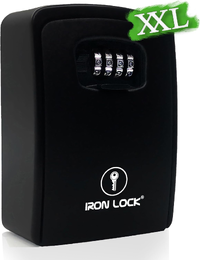nstassel
NES Member
In the perennial discussion of what amounts to proper storage comes another example.
The client get's suspended for an alleged assault and battery on his ex. OK. The police tell him that his LTC is suspended and he can go to his house and give them consent or they will get a warrant to search his house for all the guns on his FRB list. He agrees to let them into the house and seize the guns. Fine. He goes to the house with them following and has girlfriend or his in-laws that live there unlock the chained and deadbolted bulkhead doors. He walks in with the police down the bulkhead and opens the interior door by turning the simple privacy type lock. They go into the basement and he retrieves a hidden key from a shelf under the stairs leading up to the kitchen. He then uses the key to unlock an -exterior type- locking knob on a solid core door which secures an office. Two rifles are unsecured in the room. The other entry to the basement from the kitchen is also locked with a exterior type door and lock. All the other guns are properly secured in safes or locking containers.
They summons him in for a clerk's hearing for the two rifles. They claim that the key was hidden too close to the door for it to satisfy the requirement that the firearms be secured from all but the most persistent unauthorized access. He is charged for having guns behind two serious locked or chained access points.
Point being, make your storage decisions wisely as you never know when the police will be second guessing them.
The client get's suspended for an alleged assault and battery on his ex. OK. The police tell him that his LTC is suspended and he can go to his house and give them consent or they will get a warrant to search his house for all the guns on his FRB list. He agrees to let them into the house and seize the guns. Fine. He goes to the house with them following and has girlfriend or his in-laws that live there unlock the chained and deadbolted bulkhead doors. He walks in with the police down the bulkhead and opens the interior door by turning the simple privacy type lock. They go into the basement and he retrieves a hidden key from a shelf under the stairs leading up to the kitchen. He then uses the key to unlock an -exterior type- locking knob on a solid core door which secures an office. Two rifles are unsecured in the room. The other entry to the basement from the kitchen is also locked with a exterior type door and lock. All the other guns are properly secured in safes or locking containers.
They summons him in for a clerk's hearing for the two rifles. They claim that the key was hidden too close to the door for it to satisfy the requirement that the firearms be secured from all but the most persistent unauthorized access. He is charged for having guns behind two serious locked or chained access points.
Point being, make your storage decisions wisely as you never know when the police will be second guessing them.




![ROFL [rofl] [rofl]](/xen/styles/default/xenforo/smilies.vb/013.gif)